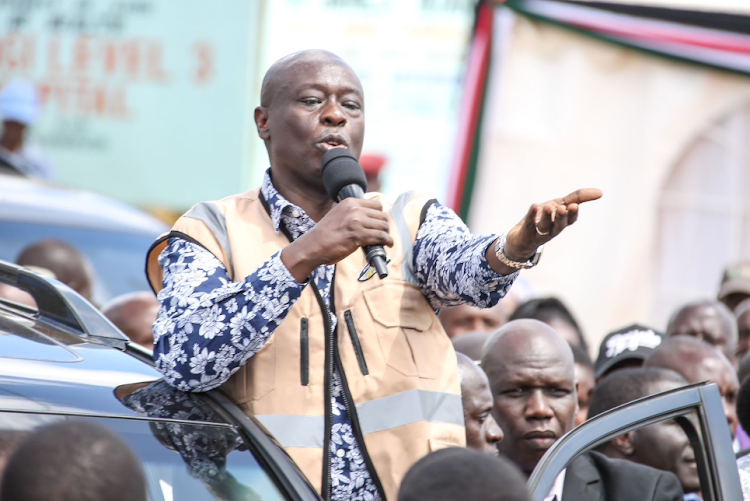Alcoholism: Central’s top-down approach doomed

A high-powered meeting of top Central Kenya leaders was held in Nyeri to discuss the notorious issue of alcoholism and drug abuse in Central Kenya. Top Government mandarins led by Deputy President, Rigathi Gachagua, and Cabinet Secretary for Interior, Prof Kithure Kindiki attended.
As has become the norm, the meeting went through the time-honoured tradition of haranguing government officials who “were sleeping on the job,” and telling everybody else what they needed to do. A countrywide campaign would follow.
This is a fantastic initiative. Only problem is, Kenyans have been here before. In 2015, retired President Uhuru Kenyatta led a personal crusade against alcoholism in Central Kenya. He said that a countrywide war against alcoholism would then follow. He deployed the “full force” of the administrative and security apparatus. There was a deluge of alcohol as brews were ferreted out and poured. Inexplicably, the campaign fizzled out as fast as it had started.
Counties took initiative as well. Former governors Mwangi wa Iria (Murang’a) and Ferdinand Waititu (Kiambu) spent hundreds of millions on well meaning but ultimately completely useless programmes to fight this problem which did not move the dial one bit.
It should concern anybody trying to address this issue permanently and on a sustainable basis that Government officials seem to be chasing their tails! Make no mistake, there is a deathly problem that is stalking a whole generation in Central Kenya.
The statistics from the National Authority for the Campaign Against Alcohol and Drug Abuse (NACADA), state that Central Kenya, at 12.8 per cent, was ranked as the region with the highest consumption of alcohol countrywide, against a national average of 11.8 per cent.
Critically, the region’s consumption of illegal brews, at 4.1 per cent, is almost double the national average of 2.5 per cent. A whole generation is being destroyed by alcohol, and its epoch will disappear without their having made any impact. To give credit to the Deputy President, he has kept this issue at the top of the Government’s agenda. But the fact that his launch mirrored almost word for word, with that of President Uhuru seven years ago, is very worrying indeed.
Importantly, nobody has ever taken responsibility for this problem. Everybody points fingers at everybody else. If nobody accepts any responsibility, how can there be anybody to take responsibility for the actions needed? Where does accountability lie?
There is a missing link. The war against alcoholism in Central Kenya is an elite pursuit, fought in boardrooms and high level Government meetings, where people talk to the wind. Where is the ownership of the community? What do all these youths who are embroiled in alcoholism think, or want? What do their parents, suffering the impacts of their children’s alcoholism think, or want? And community leaders?
How can Central Kenya put together a community developed, community led, and community implemented programme to address alcoholism? The Government must go back to the drawing board. This top down approach has failed miserably. The only way there can be a fresh start to give new impetus to this war is a bottom up approach, which will draw the synergies, energies, wisdom and capacity at the community level. They live with the problem. They must be an integral part of the solution. There must be ownership of this war at the grassroots. One hopes that this battle is true. Former Chairman of NACADA, John Mututho’s words should fire are a warning shot. Several years ago, he stated that the reason why the campaigns have always failed is that they have never been honest, and have been used to build political profiles of leaders in the frontline and promote their egos, but not to end the menace.
Are the leaders who met in Nyeri ready to tackle their business and political allies who manufacture dangerous brews? Are the leaders ready to take the time to sit down and listen and support community led initiatives? Or will they insist on persisting with a template that has been a monumental failure?
—gathukara@gmail.com












